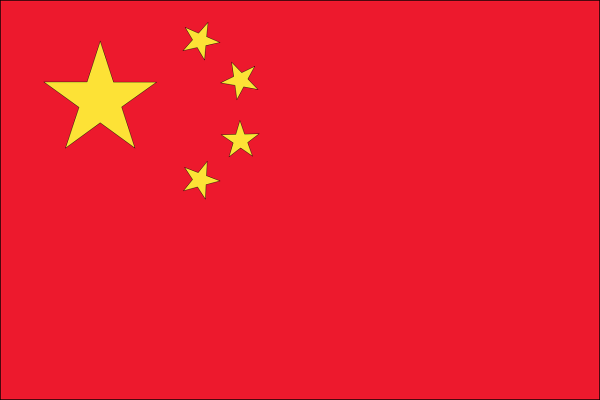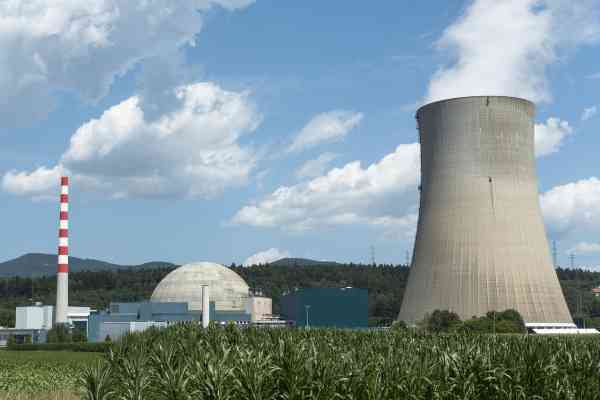May 18th, 2023 | 09:30 CEST
Climate protection as an investment: BASF, Commerzbank, GoviEX Uranium
Fewer CO2 emissions, more climate protection. Every DAX-listed company is committed to more sustainability in some form or another. But what is the truth of these promises? And are the supposed climate shares a sustainable investment at all? We do the check and take a detailed look at three exciting stocks from different sectors and regions.
time to read: 3 minutes
|
Author:
Nico Popp
ISIN:
BASF SE NA O.N. | DE000BASF111 , COMMERZBANK AG | DE000CBK1001 , GOVIEX URANIUM INC A | CA3837981057
Table of contents:

"[...] Having Investors like Robert Friedland and Rob McEwen come in with CVMR and Terra Capital really was terrific. [...]" Terry Lynch, CEO, Power Nickel Inc.
Author
Nico Popp
At home in Southern Germany, the passionate stock exchange expert has been accompanying the capital markets for about twenty years. With a soft spot for smaller companies, he is constantly on the lookout for exciting investment stories.
Tag cloud
Shares cloud
BASF: Focuses on giga-heat pumps
BASF and climate protection? For many skeptics, they do not seem to go hand in hand. After all, the BASF plant in Ludwigshafen is still considered a gigantic power guzzler. But since oil and gas from Russia stopped flowing for BASF, too, a rethink has begun. Besides ending some energy-intensive preliminary products at the German site, the Company from the Rhine-Neckar region also wants to score with new technology: Gigantic heat pumps are to use waste heat from production to produce steam. BASF requires this steam for various manufacturing processes, such as products for construction and agriculture and even for cosmetics. According to BASF, the Ludwigshafen site alone produces around 20 million tons of steam annually. Between 2018 and 2030, this approach is expected to enable a 25% reduction in CO2 emissions.
Commerzbank: What is really sustainable?
The financial sector is also becoming more and more climate-neutral. Studies say that the risk for banks in financing less sustainable projects is disproportionately higher than for ESG-compliant projects. Nevertheless, industrial companies are not running out of financing partners. As Commerzbank recently told the Tagesschau, the number of clients turned away because of insufficient awareness of climate change could be counted on one hand. In addition, when it comes to corporate financing, the actual state of affairs plays less of a role than the purpose of the investment. Investments in greater sustainability, therefore, continue to pay off - for industry and banks.
While in Germany there is a consensus on which measures are sustainable and which are not, market players in other regions of the world are more flexible. In Finland, for example, even the Greens argue in favour of nuclear energy, citing climate protection as the reason. New nuclear reactors are also planned in China, the USA and even Japan. The uranium comes primarily from Kazakhstan, but Africa has also always been a popular mining region. The Canadian company GoviEx Uranium is pushing ahead with three projects in Zambia, Niger and Mali. The Madaouela project in Niger has been approved for mining and already has a feasibility study. The Muntanga project in Zambia has also received the green light from the authorities for mining. Thus positioned, GoviEx Uranium intends to mine uranium from 2025.
GoviEx Uranium: Positive developments
The uranium price shows that this could be extremely worthwhile. From its low after the Fukushima disaster, uranium climbed by more than 180%. According to analysts, demand will likely continue to rise in the coming years, while supply will only grow gradually. Reluctant financing partners with a narrow ESG view have also made it difficult for companies in the uranium business to finance investments in recent years. GoviEx Uranium most recently successfully completed a CAD 15 million financing and is now moving forward. In 2024, the Company also plans to submit a feasibility study on the Muntanga project and provide more detail on possible ESG impacts through an Environmental and Social Impact Assessment (ESIA). This highlights even more clearly that the Company has two hot irons in the fire on the road to production.
"Our continued progress at the Muntanga uranium project reflects our commitment to responsible and sustainable development in Africa. With the completion of our ESIA and Feasibility Study scheduled for 2024, we are well-positioned to advance this project towards near-term production and significantly contribute to the global uranium market. We are excited about the potential of the Muntanga project and the positive impact it will have on our stakeholders and the local community," GoviEx CEO Daniel Major commented on the latest developments.
Whether it is industrial companies like BASF that are sustainably transforming their business and taking innovative paths to doing so, financiers like Commerzbank or the young uranium company GoviEx Uranium: climate protection shares have many faces. While the transformation of the industry is fraught with its own risks, the opportunities for banks seem great. GoviEx Uranium's venture is also subject to the typical project risks of growth companies in the natural resources sector. However, the prospect of two uranium projects in Africa and the growing demand for uranium also mean opportunities. Investors should keep an eye on the share, which is currently trading at a low.
Conflict of interest
Pursuant to §85 of the German Securities Trading Act (WpHG), we point out that Apaton Finance GmbH as well as partners, authors or employees of Apaton Finance GmbH (hereinafter referred to as "Relevant Persons") may hold shares or other financial instruments of the aforementioned companies in the future or may bet on rising or falling prices and thus a conflict of interest may arise in the future. The Relevant Persons reserve the right to buy or sell shares or other financial instruments of the Company at any time (hereinafter each a "Transaction"). Transactions may, under certain circumstances, influence the respective price of the shares or other financial instruments of the Company.
In addition, Apaton Finance GmbH is active in the context of the preparation and publication of the reporting in paid contractual relationships.
For this reason, there is a concrete conflict of interest.
The above information on existing conflicts of interest applies to all types and forms of publication used by Apaton Finance GmbH for publications on companies.
Risk notice
Apaton Finance GmbH offers editors, agencies and companies the opportunity to publish commentaries, interviews, summaries, news and the like on news.financial. These contents are exclusively for the information of the readers and do not represent any call to action or recommendations, neither explicitly nor implicitly they are to be understood as an assurance of possible price developments. The contents do not replace individual expert investment advice and do not constitute an offer to sell the discussed share(s) or other financial instruments, nor an invitation to buy or sell such.
The content is expressly not a financial analysis, but a journalistic or advertising text. Readers or users who make investment decisions or carry out transactions on the basis of the information provided here do so entirely at their own risk. No contractual relationship is established between Apaton Finance GmbH and its readers or the users of its offers, as our information only refers to the company and not to the investment decision of the reader or user.
The acquisition of financial instruments involves high risks, which can lead to the total loss of the invested capital. The information published by Apaton Finance GmbH and its authors is based on careful research. Nevertheless, no liability is assumed for financial losses or a content-related guarantee for the topicality, correctness, appropriateness and completeness of the content provided here. Please also note our Terms of use.




